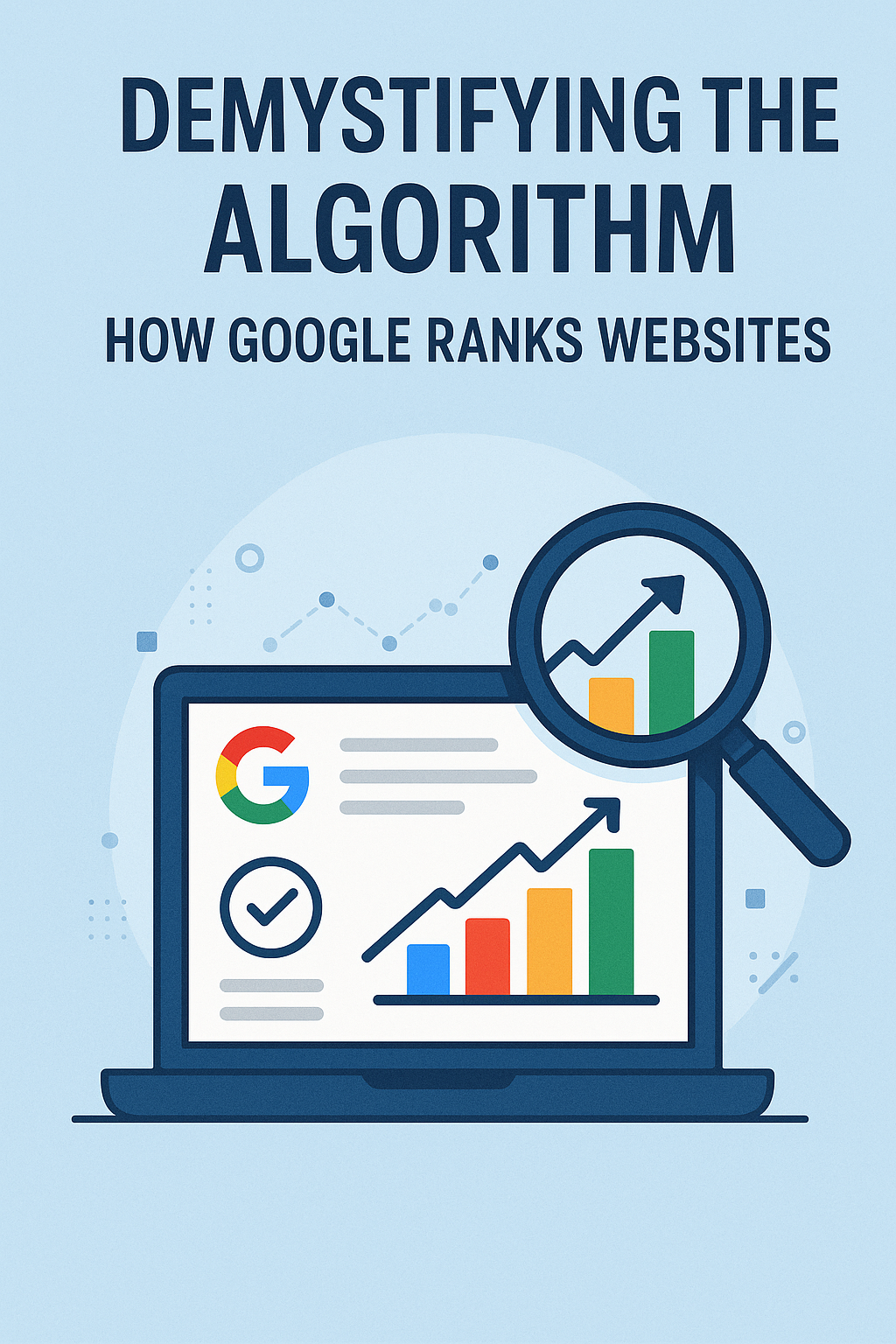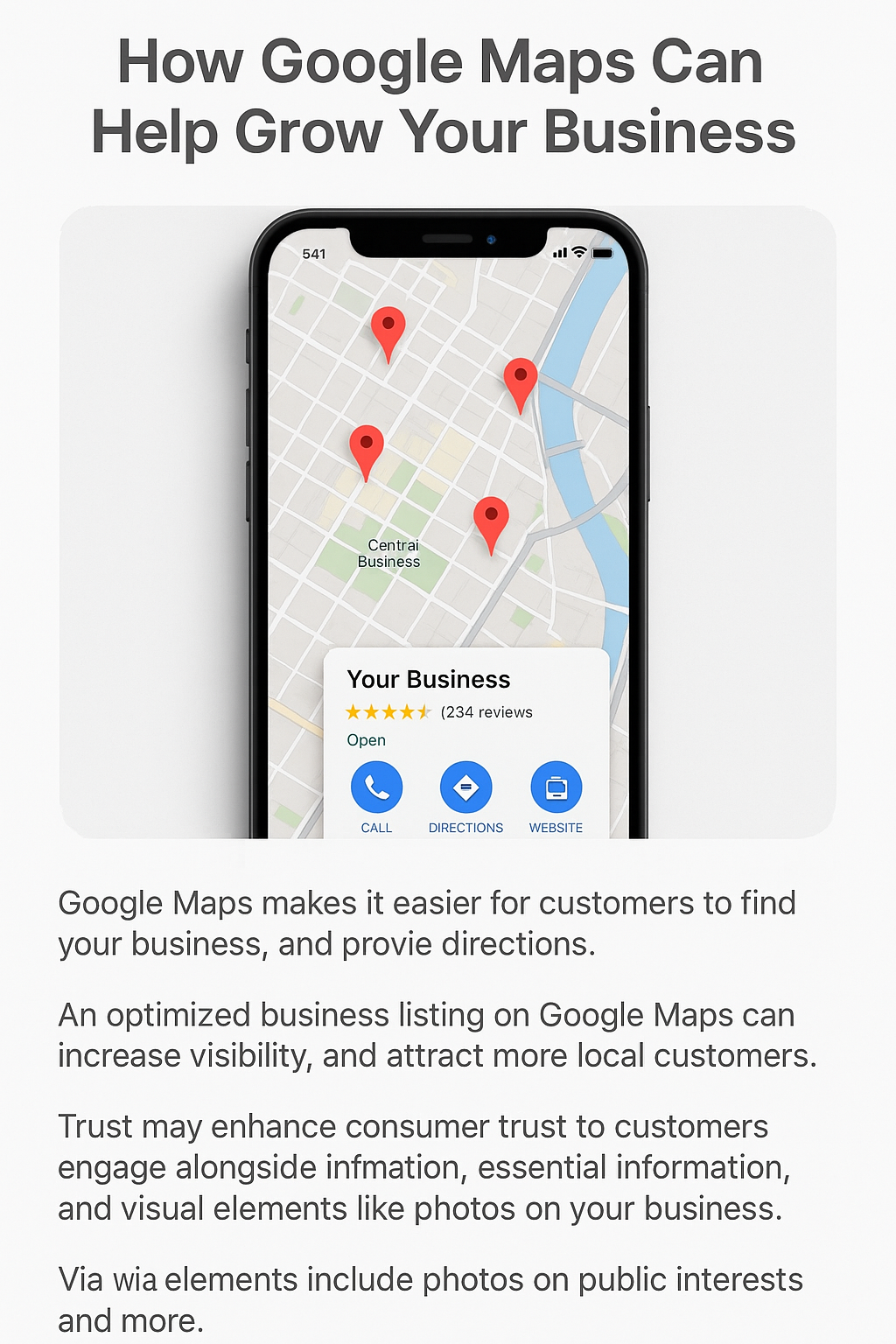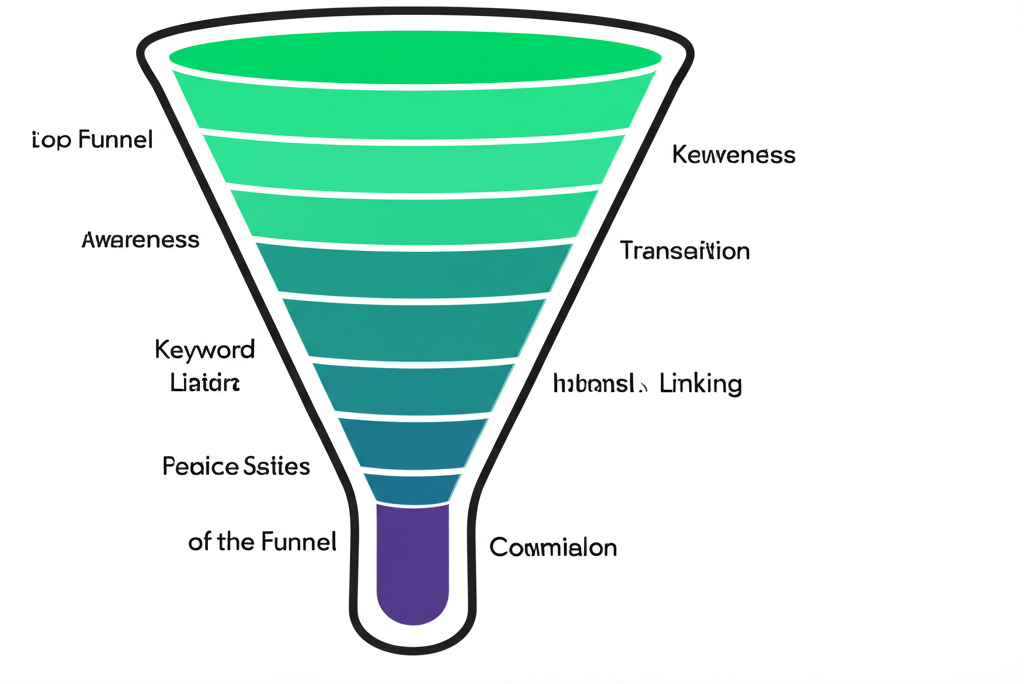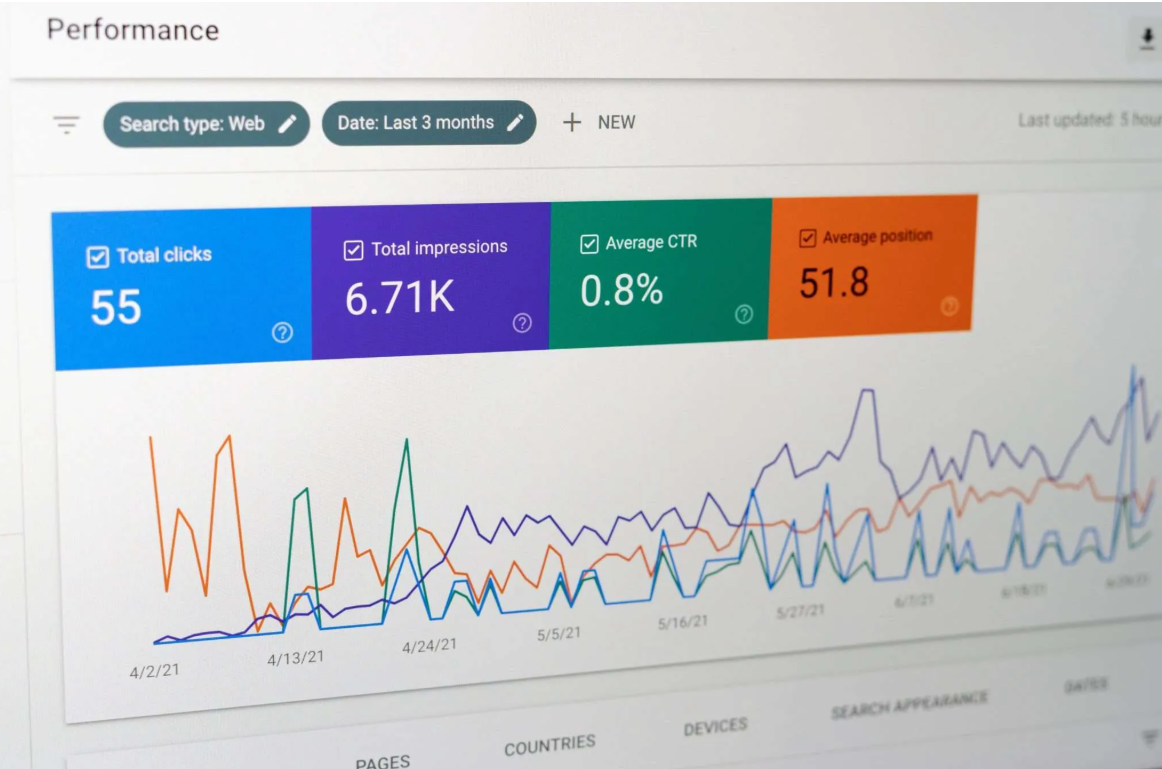Thinking About Diving into Digital Marketing? Here's What to Mull Over First
Thinking About Diving into Digital Marketing? Here's What to Mull Over First!
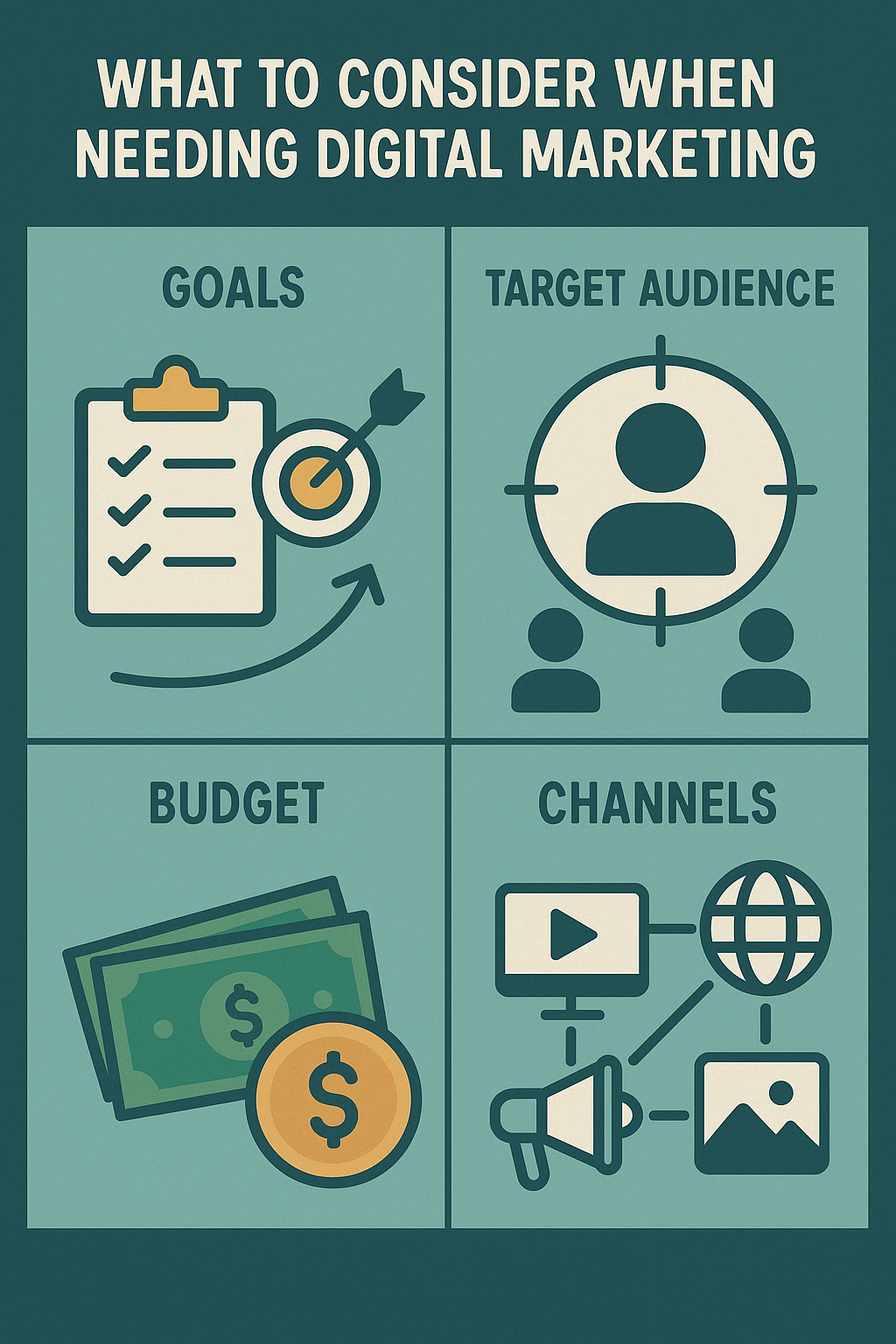
So, you're feeling the pull. Maybe your website is gathering dust in the digital corner, or perhaps your sales aren't quite where you'd like them to be. The whisper of "digital marketing" has likely crossed your path, promising a world of online visibility and customer engagement. But before you take the plunge, it's wise to pause and ponder a few crucial considerations. Jumping in without a plan is like setting sail without a map – exciting, perhaps, but likely to leave you adrift.
Here are some key questions to ask yourself as you consider the world of digital marketing:
1. What Exactly Are Your Goals?
This might seem obvious, but it's the bedrock of any successful digital strategy. Are you aiming to:
· Increase brand awareness? You want more people to know who you are and what you do.
· Generate leads? Your focus is on collecting contact information from potential customers.
· Drive sales? Ultimately, you want those online efforts to translate into revenue.
· Improve customer loyalty? You want to keep your existing customers engaged and coming back for more.
· Boost website traffic? You need more eyeballs on your online presence.
Clearly defining your objectives will shape the tactics you employ and the metrics you'll use to measure success. "More traffic" is vague; "Increase website traffic by 20% in the next quarter" is a goal you can work towards.
2. Who is Your Ideal Customer?
· You can't effectively market to everyone. Understanding your target audience is paramount. Consider:
· Demographics: Age, location, income, education, etc.
· Psychographics: Interests, values, lifestyle, online behavior.
· Pain points: What problems are they trying to solve? How can your product or service help?
· Where do they spend their time online? Which social media platforms do they frequent? What websites do they visit?
Knowing your customers inside and out will allow you to tailor your messaging and choose the most effective channels to reach them.
3. What Channels Are Right for You?
The digital landscape is vast and ever evolving. Not every platform or tactic will be a good fit for your business. Consider:
· Search Engine Optimization (SEO): Optimizing your website to rank higher in search engine results.
· Search Engine Marketing (SEM) / Pay-Per-Click (PPC): Running paid advertisements on search engines.
· Social Media Marketing: Engaging with your audience on platforms like Facebook, Instagram, Twitter, LinkedIn, etc.
· Email Marketing: Building relationships and promoting offers through email campaigns.
· Content Marketing: Creating valuable and informative content (blog posts, videos, infographics) to attract and engage your audience.
Research which channels your target audience frequents, and which align with your goals and budget.
4. What Resources Do You Have (Time, Skills, People)?
Implementing a successful digital marketing strategy requires time, specific skills, and often, dedicated personnel. Be honest about your current capacity:
· Time: Do you have the bandwidth to consistently create content, manage social media, or analyze data?
· Skills: Do you or your team possess the necessary expertise in areas like SEO, content creation, social media management, or Google Maps?
· People: Do you have enough hands on deck to execute your chosen strategies effectively?
Identifying any gaps will help you determine whether you need to hire a digital agency.
5. How Will You Measure Success?
Without tracking your results, you won't know if your digital marketing efforts are paying off. Identify key performance indicators (KPIs) that align with your goals:
· Website traffic: Number of visitors, bounce rate, time on page.
· Leads generated: Number of form submissions, inquiries, sign-ups.
· Conversion rates: Percentage of website visitors who complete a desired action (e.g., make a purchase, download a resource).
· Social media engagement: Likes, comments, shares, reach.
· Return on investment (ROI): The profit generated from your digital marketing spend.
· Establish tracking mechanisms and regularly analyze your data to identify what's working and what needs adjustment.
6. What's Your Budget?
Digital marketing offers a range of options, from free organic strategies to paid advertising campaigns. It's crucial to have a realistic understanding of your financial resources. Consider:
· Short-term vs. long-term investments: Some tactics yield quicker results but require ongoing investment, while others take time to build momentum.
· In-house vs. outsourcing: Will you hire a dedicated team, train existing staff, or partner with an agency? Each option comes with different cost implications.
· Cost per acquisition (CPA): How much are you willing to spend to acquire a new customer?
Having a budget in mind will help you prioritize strategies and avoid overspending.
Taking the First Step with Intention
Embarking on a digital marketing journey can be incredibly rewarding, opening doors to new customers and growth opportunities. However, taking the time to thoughtfully consider these questions will set you up for a much greater chance of success. By defining your goals, understanding your audience, budgeting wisely, choosing the right channels, assessing your resources, and establishing clear metrics, you'll be able to decide which digital agency is right for you. Good luck and if you have any question drop us a line!




